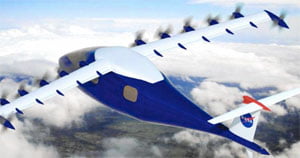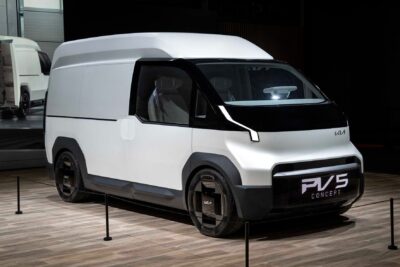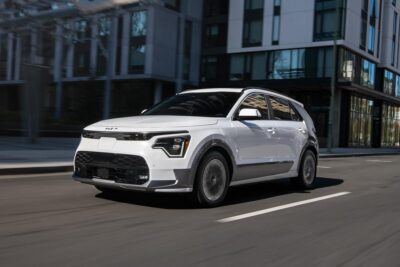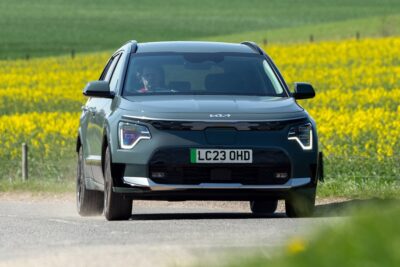NASA, GS Yuasa, University of Wollongong, Kia Soul EV.
 NASA to fly electrically: The American space agency is working on what it calls the ‘distributed electric propulsion’ system which could eventually make the dream of flying electric cars come true. The technology is based on multiple small electrically driven propellers and said to be highly efficient. Testing is to start within two weeks and more details are to follow in less than a year.
NASA to fly electrically: The American space agency is working on what it calls the ‘distributed electric propulsion’ system which could eventually make the dream of flying electric cars come true. The technology is based on multiple small electrically driven propellers and said to be highly efficient. Testing is to start within two weeks and more details are to follow in less than a year.
dailypress.com, chinatopix.com
Tripled capacity? Japanese battery manufacturer GS Yuasa claims to have developed a Li-ion battery that bears three times the capacity of existing products thanks to a sulfur-based cathode. GS Yuasa plans to commercialise its new battery technology by 2020.
electric-vehiclenews.com, plugintoday.net
New anode material: Researchers at the Australian University of Wollongong have identified lead germanate-graphene nanosheets composites to make suitable anodes for Li-ion batteries. The composite anode prove superior in terms of capacity, cycling stability and rate capability.
greencarcongress.com
Kia Soul EV battery: The Korean carmaker issued a video explaining the inner workings of the Soul EV battery. It uses cells by SK Innovation which will soon be implemented in the Chevrolet Volt as well, according to Steve Kosowski, National Manager Kia Motors America.
youtube.com (video) via insideevs.com
– Feedback –
Most clicked link on Monday was the BMW 2-series Active Tourer, which is said to become available as an all-wheel driven plug-in hybrid variant next year.
carmagazine.co.uk




0 Comments